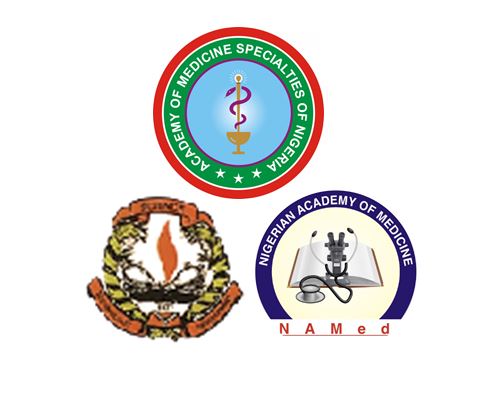The College of Medicine, University of Ibadan, has received with delight the announcement that some of her academic staff were inducted as fellows of some of the most respected professional academies in Nigeria. These fellowship awards are in recognition of their notable contributions to their fields of expertise. We wish them the very best as they enjoy this recognition of their hard work and dexterity.
The fellows are as follows:
Fellowship of the Academy of Medicine Specialties of Nigeria (FAMeds)
1. Prof. John Anetor
2. Prof. Victor Lasebikan
3. Prof. Oyindamola Abiodun
Fellowship of the Nigerian Academy of Medicine (FNAM)
1. Prof. IkeOluwa Lagunju
2. Prof. Adesina Oladokun
3. Prof. Omolola Atalabi
4. Prof. Regina Oladokun
Fellowship of the National Academy of Science (NAS)
1. Prof. Rufus Akinyemi
Here, we present short biographies of the fellows with indications of the specific fellowships they were awarded.
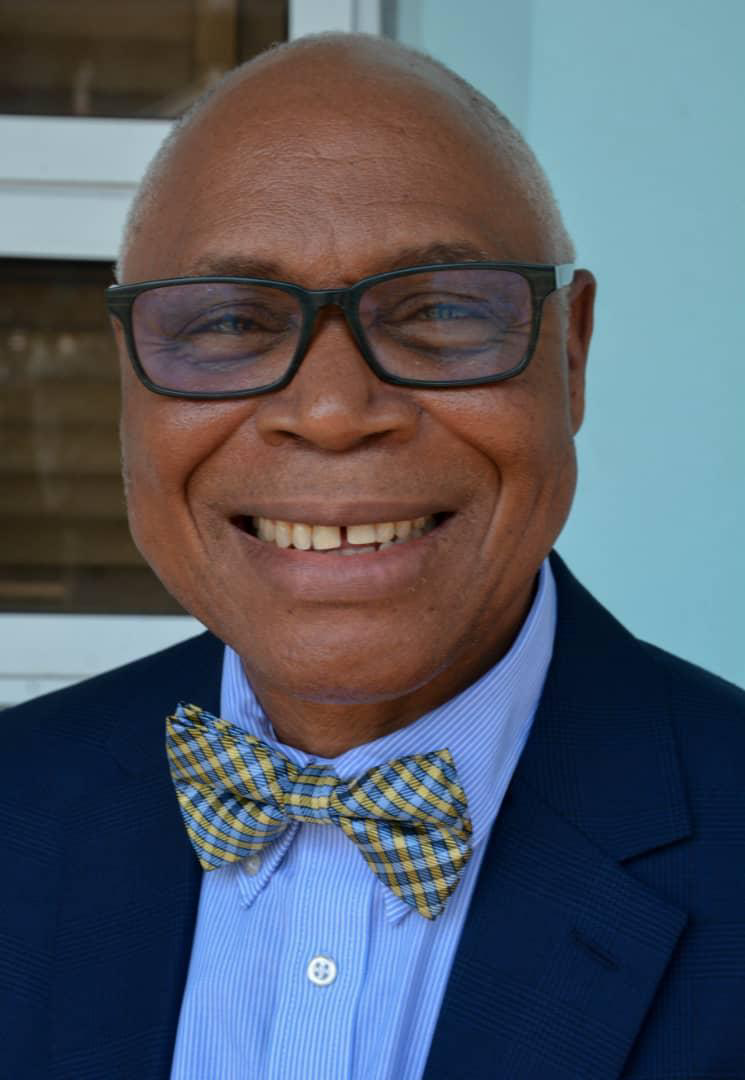 John Anetor is a clinical chemist and toxicologist. He holds a PhD in Chemical Pathology from the University of Ibadan and had his postdoctoral training at the Osaka City University Medical School in Osaka, Japan. His undergraduate education was in medical laboratory science, and he won the prize for the ‘Best Academic Student’. He is a Professor of Chemical Pathology and Toxicology and the immediate past head of the Chemical Pathology Department.
John Anetor is a clinical chemist and toxicologist. He holds a PhD in Chemical Pathology from the University of Ibadan and had his postdoctoral training at the Osaka City University Medical School in Osaka, Japan. His undergraduate education was in medical laboratory science, and he won the prize for the ‘Best Academic Student’. He is a Professor of Chemical Pathology and Toxicology and the immediate past head of the Chemical Pathology Department.
John Anetor is a Fellow of the Academy of Diagnostics and Laboratory Medicine (FADLM), the Academy of Toxicological Sciences (F-ATS), the Royal Society of Chemistry (FRSC, UK), the American College of Nutrition (FACN), and the Life Member Environmental Mutagen Society of India (EMSI), among others. He was recently elected a Fellow of the Academy of Medicine Specialties of Nigeria (FAMedS).
John Anetor was a Visiting Professor and Research Consultant at the Cumming School of Medicine, University of Calgary, in Canada. He chairs the International Federation of Clinical Chemistry and Laboratory Medicine (IFCC) Task Force on Environmental Impact of Laboratory Medicine (TF-EILM). In addition, he represents IFCC at the World Health Organisation (WHO) as a member of ‘Non-State Actors in Official Relations’.
He was a member of the National Committee for the Removal of Lead from Nigeria’s Gasoline, a project coordinated by the World Bank. Anetor also served as a principal consultant for the Federal Ministry of Health on the National Lead Poison Elimination, Treatment, and Strategic Intervention Scheme. He is a two-term member of the National Health Research Ethics Committee (N-HREC) and has won several grants and fellowships. He also served as the Section Editor of the African Journal of Laboratory Medicine in Cape Town, South Africa.
His research focuses on investigating toxic states, including chemical carcinogenesis and amelioration with nutritional factors, based on the antioxidant hypothesis, which includes chemoprevention and employs molecular mechanisms. To his credit, John Anetor has over 165 publications, 2,175 Google Scholar citations, an h-index of 24, and an i-10 index of 46. He is happily married to Gloria, a Professor of Public Health Education, and they have four children.
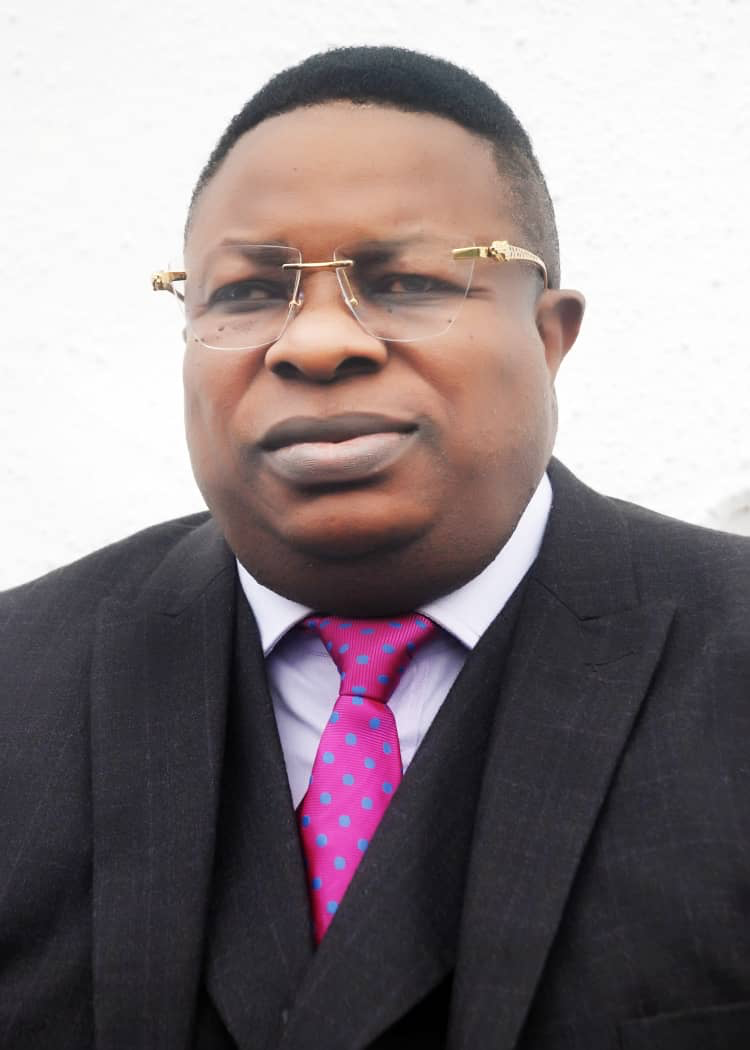 Professor Victor Olufolahan Lasebikan is a distinguished scholar and a leading authority in the field of psychiatry, with over three decades of experience in clinical practice, research, and teaching. As a professor of Psychiatry and Addiction at the University of Ibadan and an honorary consultant psychiatrist at the University College Hospital, Ibadan, his contributions to mental health care, particularly in consultation-liaison psychiatry, addiction, and public mental health, have impacted Nigeria and worldwide.
Professor Victor Olufolahan Lasebikan is a distinguished scholar and a leading authority in the field of psychiatry, with over three decades of experience in clinical practice, research, and teaching. As a professor of Psychiatry and Addiction at the University of Ibadan and an honorary consultant psychiatrist at the University College Hospital, Ibadan, his contributions to mental health care, particularly in consultation-liaison psychiatry, addiction, and public mental health, have impacted Nigeria and worldwide.
Lasebikan holds an MBChB degree from the University of Ife (now Obafemi Awolowo University), an MS, M.Sc. in Addiction Medicine from the Virginia Commonwealth University, Richmond, The Institute of Psychiatry, Kings College London, and University of Adelaide, Australia, a Master of Public Health (MPH) and a Doctorate (PhD) in Public Health from the University of Ibadan, and a Doctor of Medicine (MD) from the National Postgraduate Medical College. He also holds a specialist Fellow certification from the West African College of Physicians (FWACP), the National Postgraduate Medical College (FMCPsych), and the Royal College of Physicians of Edinburgh (FRCP), where he serves as the regional adviser for West Africa. In addition to his core medical qualifications, Lasebikan holds a Psychosomatic Specialist Certificate from the International College of Psychosomatic Medicine and is a leading African member of several prestigious international bodies, including the International Society of Addiction Medicine (ISAM), the International Society of Biological Research on Alcohol (ISBRA), and the Society for Research on Nicotine and Tobacco.
Lasebikan’s pioneering work in Consultation-Liaison Psychiatry has been widely recognized, and he recently authored a seminal 40-chapter textbook titled “Textbook of Psychiatry in Medicine.” He established psychiatric oncology services at the University College Hospital, Ibadan, positioning himself as a key Nigerian member of the International Psycho-oncology Society. His prolific academic and research activities have earned him over 35 fellowship awards, and he has been a collaborator for the World Mental Health Survey Initiative. He is a senior Public Health and Addiction Studies consultant with R-DATS Consulting, a multinational organization working across several African countries to deliver high-quality research and policy recommendations.
He is the founder of the PAHMI Foundation, a non-governmental organization focused on the prevention, treatment, and rehabilitation of individuals with substance use problems. As the honorary board chairman of one of New World Health Groups, he has overseen the evolution of one of Nigeria’s premier private mental health institutions into a group of three facilities, including a drug rehabilitation center and a multi-specialist hospital, facilitating the integration of Consultation-Liaison Psychiatry into full practice.
Prof. Victor O. Lasebikan is among the top 3% of scientists in the field of psychiatry and addiction in Nigeria according to the AD scientific ranking of 2024
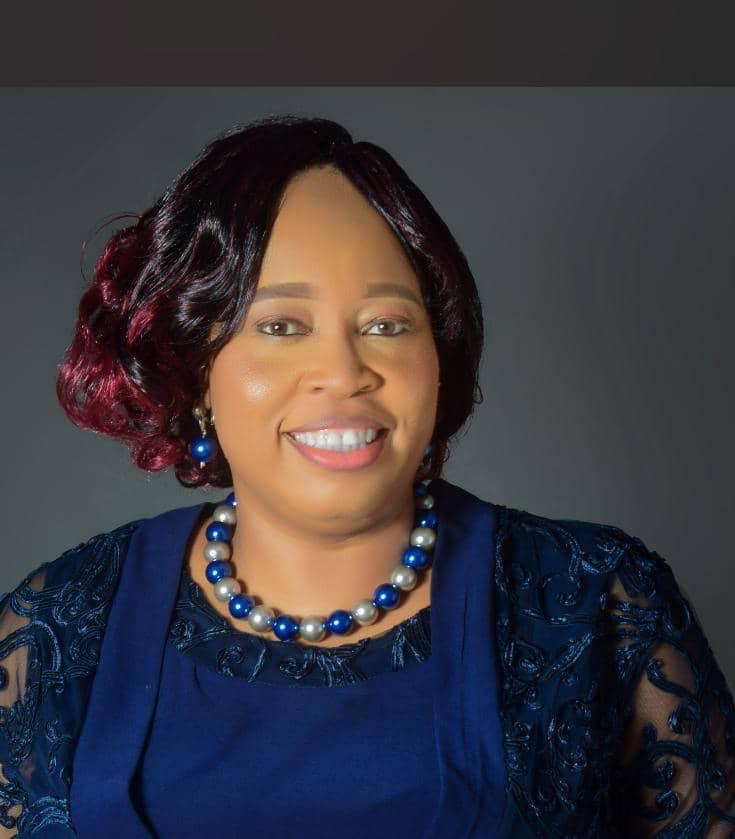 Oyindamola Abiodun (FAMedS) is a Professor of Pharmacology and Therapeutics. She was recently elected as a Fellow of the Academy of Medicine Specialties of Nigeria based on her outstanding professional achievement and commitment to service. Abiodun received pre-doctoral training on drug discovery for protozoan parasites for 15 months at the prestigious Swiss Tropical and Public Health Institute (Swiss TPH) in Basel, Switzerland. She also received training on in vitro tissue culture techniques at the Walter Reed Army Institute in the US. She was a visiting postdoctoral research fellow at the Department of Pharmacology, University of Granada in Spain, the Institute of Environmental Research, Faculty of Chemistry, Dortmund University of Technology in Germany, and the Institute of Himalayan Bioresource Technology at Palampur in India. She has attended several sponsored short-term training programs, including the Summer School in Genomics of Infectious Diseases at Harvard University in the United States and the Wellcome Trust Practical Aspects of Small Molecule Drug Discovery at Cambridge, UK.
Oyindamola Abiodun (FAMedS) is a Professor of Pharmacology and Therapeutics. She was recently elected as a Fellow of the Academy of Medicine Specialties of Nigeria based on her outstanding professional achievement and commitment to service. Abiodun received pre-doctoral training on drug discovery for protozoan parasites for 15 months at the prestigious Swiss Tropical and Public Health Institute (Swiss TPH) in Basel, Switzerland. She also received training on in vitro tissue culture techniques at the Walter Reed Army Institute in the US. She was a visiting postdoctoral research fellow at the Department of Pharmacology, University of Granada in Spain, the Institute of Environmental Research, Faculty of Chemistry, Dortmund University of Technology in Germany, and the Institute of Himalayan Bioresource Technology at Palampur in India. She has attended several sponsored short-term training programs, including the Summer School in Genomics of Infectious Diseases at Harvard University in the United States and the Wellcome Trust Practical Aspects of Small Molecule Drug Discovery at Cambridge, UK.
Abiodun’s research focuses on ethnopharmacology and chemotherapy. In particular, she has done a lot of work identifying herbs, plants, and mushrooms as nutraceuticals for managing parasitic infections (such as malaria and trypanosomiasis), obesity, diabetes, and inflammatory diseases. Her research experience also involved repositioning antibiotics by identifying anti-infectives such as ciprofloxacin and rifampicin with the capability of enhancing antimalarial activities of standard antimalarial drugs against drug-resistant Plasmodium infections in animal models. Through her research, she has provided important information on drug/drug interactions that can occur with concomitant use of antimalarial and antiretroviral drugs. In recent times, her research group has been exploring macrofungi as nutraceuticals in the context of “food as medicine” to prevent chronic diseases.
In addition, Abiodun is an expert peer-reviewer for top journals and an authority in the field of pharmacology and ethnomedicine. Some of the journals she has worked on include BMC Complementary and Alternative Medicine, Pharmaceutical Biology, Drug and Chemical Toxicology, Biomedicine and Pharmacotherapy, Parasite Epidemiology and Control, South African Journal of Botany, and Journal of Parasitology. She has also made editorial contributions to the Frontiers of Pharmacology.
Further demonstrating her expertise, Abiodun’s works have received competitive grants and fellowships from WHO/TDR, the International Federation of Science (IFS), Medicine for Malaria Ventures (MMV), COIMBRA Group Fellowship in Spain, TWAS/DFG (The World Academic of Science/German Research Foundation), Welcome Trust UK and World Bank African Centre of Excellence for Genomics of Infectious Diseases. She also received Travel fellowships from the Bill and Melinda Gates Foundation, the Royal Society of Tropical Medicine and Hygiene, and the International Society of Antiviral Research, which enabled her to participate in conferences in the US, UK, Brazil, Thailand, and Ethiopia.
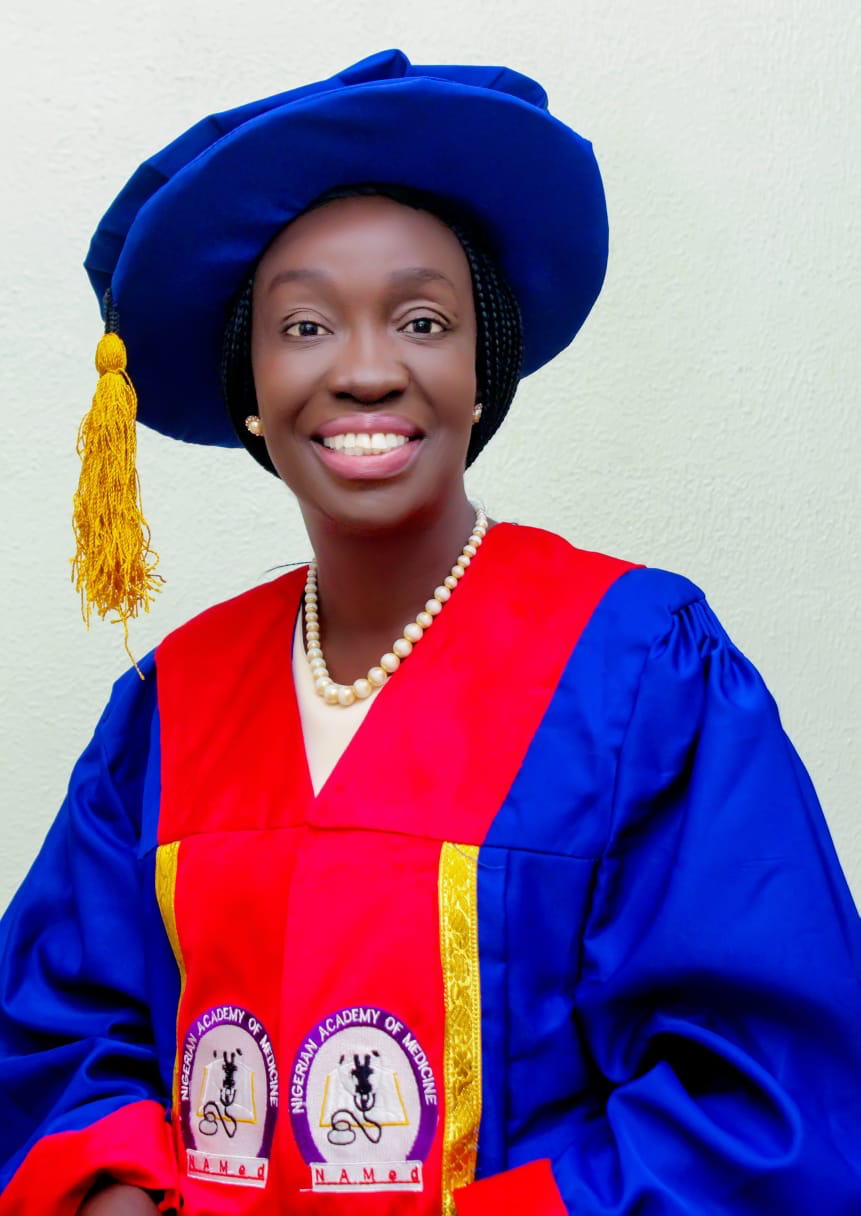 IkeOluwa Lagunju is a professor of Paediatrics at the College of Medicine, University of Ibadan, and a Consultant Paediatric Neurologist at the University College Hospital, Ibadan. She graduated at the top of her MBBS class in 1988 and is today one of the leading Paediatric Neurologists in Nigeria. IkeOluwa is a fellow of the National and West African Postgraduate Medical Colleges, the Royal College of Paediatrics and Child Health in the UK, and the MD degree of the National Postgraduate Medical College of Nigeria.
IkeOluwa Lagunju is a professor of Paediatrics at the College of Medicine, University of Ibadan, and a Consultant Paediatric Neurologist at the University College Hospital, Ibadan. She graduated at the top of her MBBS class in 1988 and is today one of the leading Paediatric Neurologists in Nigeria. IkeOluwa is a fellow of the National and West African Postgraduate Medical Colleges, the Royal College of Paediatrics and Child Health in the UK, and the MD degree of the National Postgraduate Medical College of Nigeria.
Her research has significantly influenced the field of Paediatric Neurology in Nigeria. Her work has provided novel information and shaped the national guidelines for the management, prognostication, and multidisciplinary interventions for childhood epilepsy and pediatric neuro disabilities. Her pioneering work on primary stroke prevention in children with sickle cell disease and the establishment of the first routine Transcranial Doppler (TCD) clinic for sickle cell disease in Nigeria have been instrumental in reducing stroke risk.
Her research work has redefined the pattern of stroke risk in Nigerian children with sickle cell disease, with convincing evidence that hydroxyurea significantly reduces TCD velocities, accompanied by a greater than 10-fold decline in stroke risk. This was a groundbreaking discovery. Lagunju's leadership is exemplified in her contribution to the development of the Ibadan Simplified Developmental Screening Chart, the first indigenous tool for routine developmental screening in Nigerian infants, which is a major step towards mitigating the burden of childhood disability in the sub-region.
IkeOluwa Lagunju is the immediate past President of the Child Neurology Society of Nigeria. She served as the Head of the Department of Paediatrics from 2016 to 2020 and is currently, the Director of the Institute of Neuroscience, UCH, Ibadan. She has published over 100 scholarly articles, supervised several MSc candidates as well as dissertations and has one successful PhD supervision to her credit.
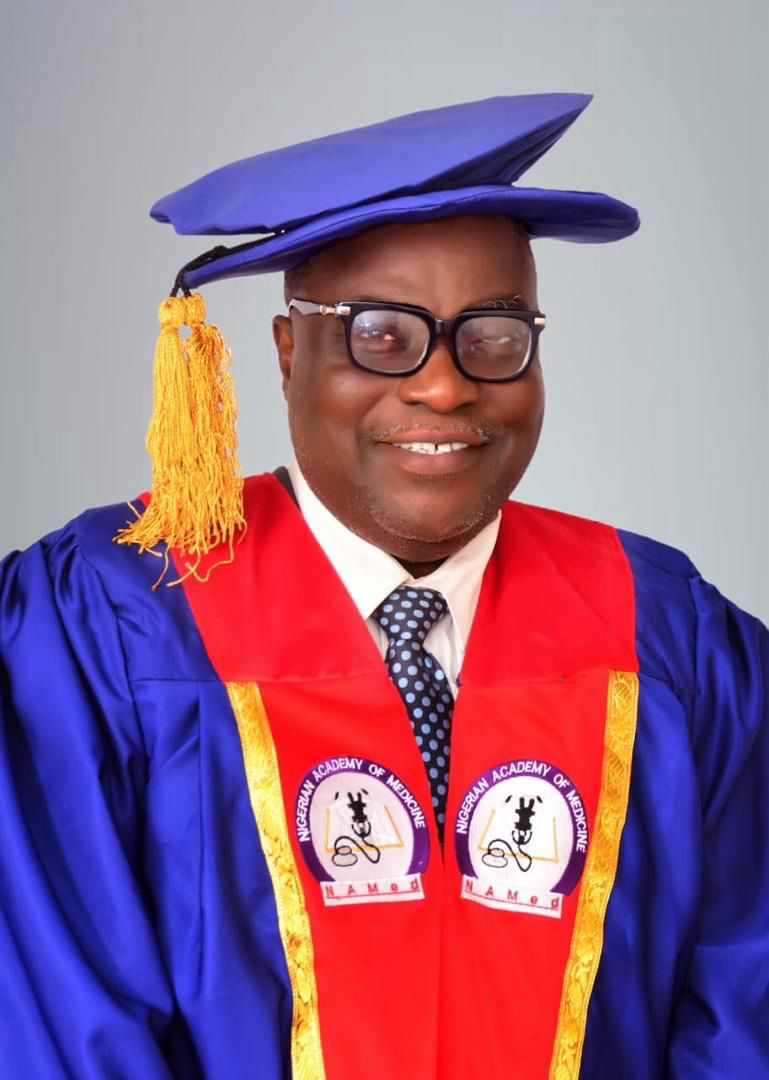 Professor Adesina Oladokun is an accomplished academic and clinician with an illustrious career spanning several decades in Obstetrics and Gynaecology. A Professor at the University of Ibadan and Consultant at the University College Hospital, Ibadan, he holds multiple advanced qualifications, including MBBS, FWACS, FMCOG, and a Doctor of Medicine from the National Postgraduate Medical College of Nigeria. His expertise is further strengthened by international certifications in Assisted Reproductive Techniques (ART) from the University of Warwick and Strategic Leadership and Management for Population and Reproductive Health from Johns Hopkins University.
Professor Adesina Oladokun is an accomplished academic and clinician with an illustrious career spanning several decades in Obstetrics and Gynaecology. A Professor at the University of Ibadan and Consultant at the University College Hospital, Ibadan, he holds multiple advanced qualifications, including MBBS, FWACS, FMCOG, and a Doctor of Medicine from the National Postgraduate Medical College of Nigeria. His expertise is further strengthened by international certifications in Assisted Reproductive Techniques (ART) from the University of Warwick and Strategic Leadership and Management for Population and Reproductive Health from Johns Hopkins University.
Oladokun has been recognized with several prestigious fellowships and awards. He was recently inducted as a Fellow of the Nigerian Academy of Medicine (FNAMed) in 2024, and his other notable recognitions include the Sir Majekodunmi Prize for the best candidate in the Part II Fellowship Exam in 1998 and a Fellowship Award from the Royal College of Obstetrics and Gynaecology.
Throughout his career, Oladokun has been the recipient of numerous grants and scholarships, including a University of Ibadan Senate Research Grant to study adherence to malaria prophylaxis in pregnancy and the MacArthur Foundation Grant for Staff Development and Capacity Building. His scholarly work is complemented by his administrative roles, including serving as the Head of the Department of Obstetrics and Gynaecology, overseeing academic programs, seminars, and scientific meetings.
Oladokun is actively involved in peer reviewing for leading journals and has made significant contributions to global reproductive health, particularly in the areas of maternal health, fertility, and reproductive endocrinology. His extensive research output, which spans numerous publications, is a testament to his commitment to advancing healthcare. He also plays a key role in training and mentoring the next generation of medical professionals.
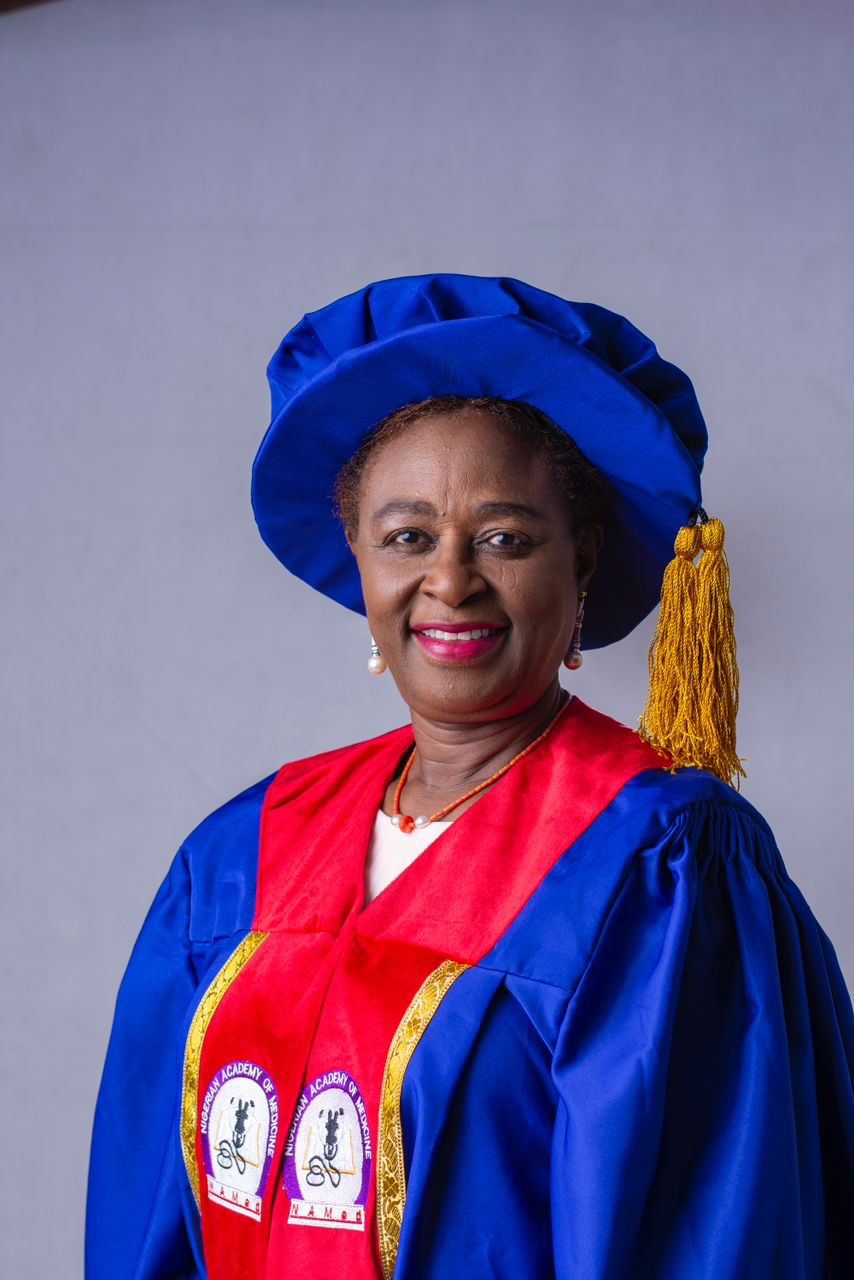 Omolola Mojisola Atalabi is a distinguished leader, researcher, and educator who is internationally known for her work in advancing Pediatric Imaging in Africa and other low-income countries for which she has been recognized worldwide, including her recent induction as a Fellow of the Nigerian Academy of Medicine (FNAMed).
Omolola Mojisola Atalabi is a distinguished leader, researcher, and educator who is internationally known for her work in advancing Pediatric Imaging in Africa and other low-income countries for which she has been recognized worldwide, including her recent induction as a Fellow of the Nigerian Academy of Medicine (FNAMed).
Early in her career, she was the recipient of the Radiological Society of North America (RSNA) Derek Harwood Nash International Fellowship at Boston Children’s Hospital for three months. This exposure sparked her interest in Paediatric radiology—a neglected subspecialty—which she had focused on and has been nurturing. She has served the radiology community in many capacities at local, regional, and international levels. She was President of the African Society of Paediatric Imaging, President of the World Federation of Paediatric Radiology, and founded the Society of Paediatric Imaging in Nigeria (SPIN). Through her efforts, Paediatric Radiology is now included as a subspecialty in both NPMC and WACS.
Atalabi was the pioneer chair of the RSNA Regional Committee for the Middle East and Africa. During her tenure, she secured discounted membership dues and travel stipends of $1,000 for up to 30 members from low-income countries, including Nigeria. She has facilitated the donation of educational materials from RSNA to many institutions in Nigeria and Ghana. She ensured that the College of Medicine, the University of Ibadan, and the University College Hospital and Radiologists in Ghana benefitted from knowledge transfer from the RSNA International Visiting Professor (IVP) Program.
Atalabi is also known for her social activism. She was a member of the task force that rebranded the IVP program to a new outreach program geared towards strengthening imaging capacity building in low-income countries into the Global Learning Center (GLC). Tanzania was made a center under her chairmanship and has become a hub for training interventional radiologists in Africa.
She currently facilitates RAD-AID International in partnership with Google in the Department of Radiology, College of Medicine, University of Ibadan. She is now a member of the RAD-AID organization (Nigeria Team). She has mentored two certified pediatric Radiologists trained in the renowned Sickids Children's Hospital in Canada.
She has mentored radiologists from all over West Africa and beyond and has authored/co-authored over 85 publications and three book chapters. She belongs to many local and international professional and social organizations.
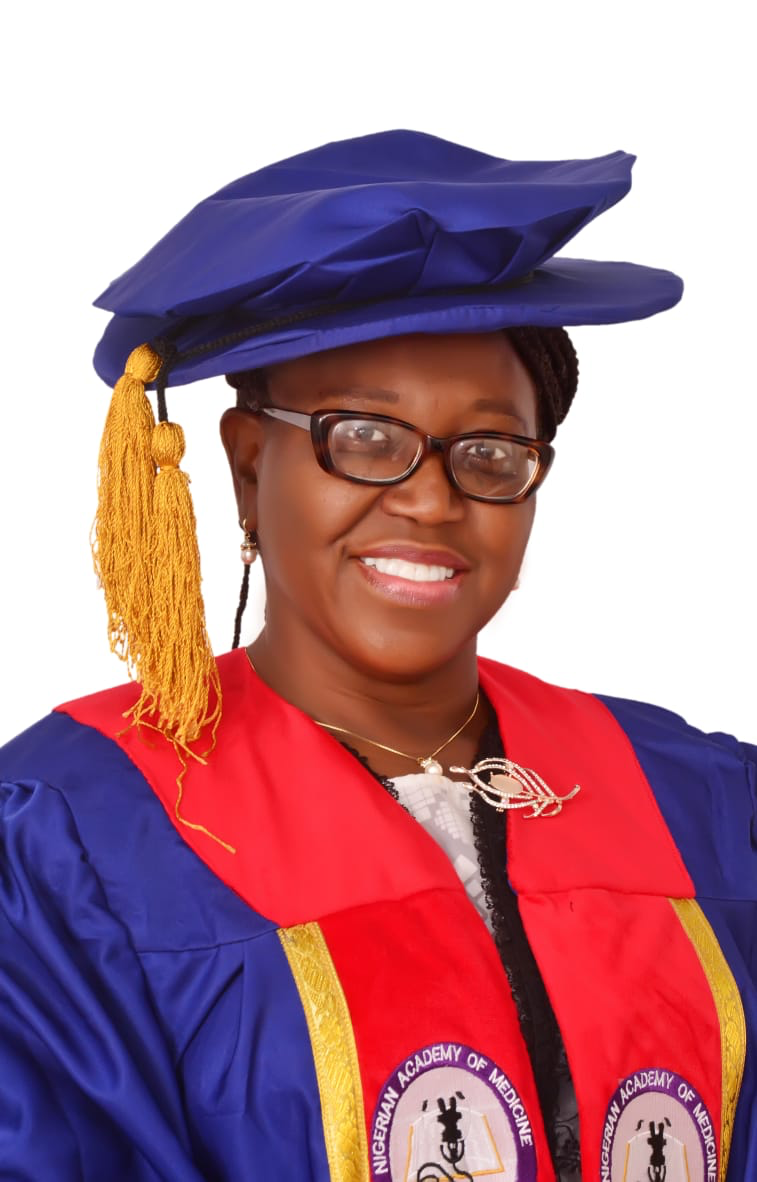 Oladokun's journey in the medical field began with her general pediatrics training at the prestigious University College Hospital, Ibadan. She then honed her skills with a short fellowship in Paediatric Infectious Diseases at the John Radcliff Hospital, Oxford, under the auspices of the Royal College of Paediatrics and Child Health, United Kingdom. Her sub-specialist on-field clinical training at the Red Cross War Memorial Hospital, as part of a degree from the University of Cape Town, further solidified her expertise. She further enriched her knowledge with a Master of Public Health (MPH) from the University of Ibadan.
Oladokun's journey in the medical field began with her general pediatrics training at the prestigious University College Hospital, Ibadan. She then honed her skills with a short fellowship in Paediatric Infectious Diseases at the John Radcliff Hospital, Oxford, under the auspices of the Royal College of Paediatrics and Child Health, United Kingdom. Her sub-specialist on-field clinical training at the Red Cross War Memorial Hospital, as part of a degree from the University of Cape Town, further solidified her expertise. She further enriched her knowledge with a Master of Public Health (MPH) from the University of Ibadan.
Oladokun currently heads the Pediatric Infectious Diseases Unit, with administrative oversight for clinical, teaching, and research. Within the Department of Paediatrics, College of Medicine, University of Ibadan, and the University College Hospital, Ibadan, she is the Director of undergraduate and postgraduate Pediatric programs. She is the foundation chair of the Antimicrobial Stewardship Committee of the University College Hospital, Ibadan. At the national level, she chairs the National Tuberculosis Research Task team, serves as vice-chair of the Child TB Steering Committee of the National Tuberculosis and Leprosy Control Programme, and is a member of several national HIV Stakeholders’ Committees.
Oladokun's dedication to research is evident in her diverse roles. She is the president of the Nigerian Society for Paediatric Infectious Diseases, the Chair of the Curriculum Committee, and the lead trainer of the Paediatric Infectious Diseases sub-specialty training programs of the West African College of Physicians and the National Postgraduate Medical College of Nigeria. Her role as the country representative for the African Network for Care of Children with HIV/AIDS (ANECCA) and as a member of the Board of the World Society for Paediatric Infectious Diseases (WSPID) further underscores her commitment to research. She is a co-investigator on several projects pertaining to her research interests, such as vaccine and non-vaccine preventable diseases, tuberculosis, HIV, and antimicrobial stewardship, inspiring others with her dedication to advancing medical knowledge.
Her roles as part of the UCH, Ibadan Emergency Response and Preparedness Team, and as Sub-Dean of the MBBS program at the Faculty of Clinical Sciences, College of Medicine, University of Ibadan, are testaments to her extensive medical training and experience.
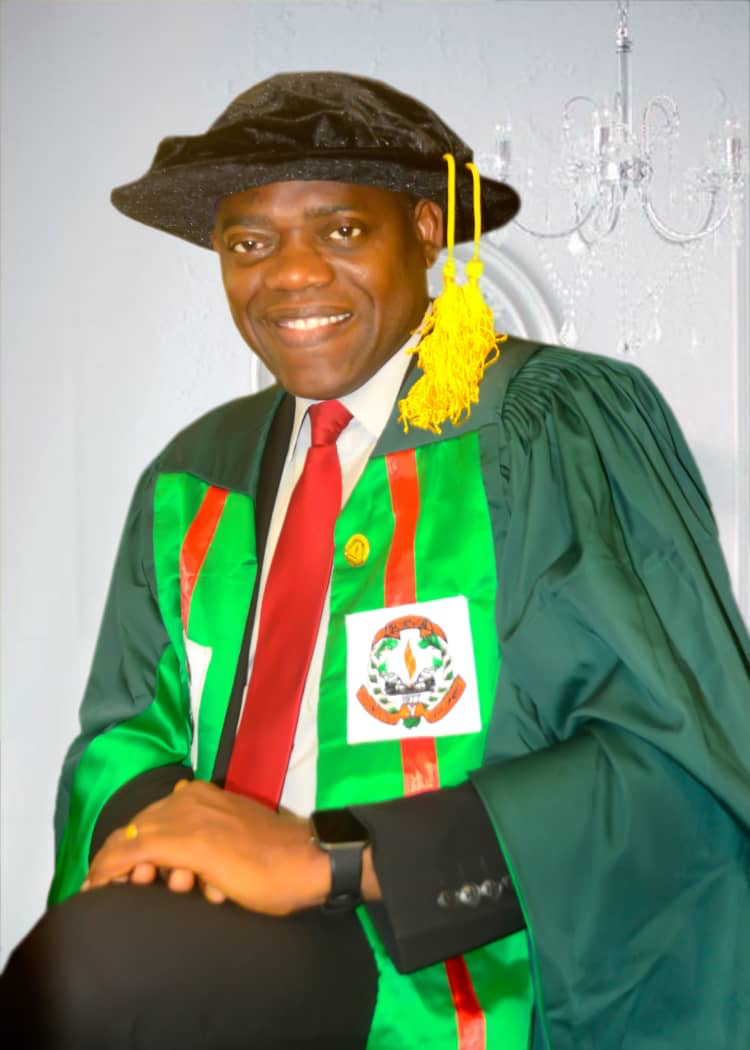 Rufus Olusola Akinyemi, FAS, winner of the 2023 Gold Medal Prize of the Nigerian Academy of Science (NAS; Life Sciences), was recently inducted as a fellow of the Nigerian Academy of Science (NAS). He had been elected fellow of the Academy of Medicine Specialties of Nigeria in 2023. He is a Professor of Geriatric Neurology and Translational Neuroscience at the Institute for Advanced Medical Research and Training (IAMRAT). He holds joint appointments in the Departments of Biochemistry and Medicine and the Institute of Cardiovascular Diseases, College of Medicine, University of Ibadan, Nigeria. He is also an honorary consultant neurologist to the University College Hospital Ibadan, Nigeria, and a visiting researcher at the Translational and Clinical Research Institute, Newcastle University, Newcastle-upon-Tyne, United Kingdom.
Rufus Olusola Akinyemi, FAS, winner of the 2023 Gold Medal Prize of the Nigerian Academy of Science (NAS; Life Sciences), was recently inducted as a fellow of the Nigerian Academy of Science (NAS). He had been elected fellow of the Academy of Medicine Specialties of Nigeria in 2023. He is a Professor of Geriatric Neurology and Translational Neuroscience at the Institute for Advanced Medical Research and Training (IAMRAT). He holds joint appointments in the Departments of Biochemistry and Medicine and the Institute of Cardiovascular Diseases, College of Medicine, University of Ibadan, Nigeria. He is also an honorary consultant neurologist to the University College Hospital Ibadan, Nigeria, and a visiting researcher at the Translational and Clinical Research Institute, Newcastle University, Newcastle-upon-Tyne, United Kingdom.
Akinyemi is an accomplished physician specializing in the genetic epidemiology and neurobiology of aging and related vascular and degenerative brain disorders, particularly stroke and dementia. He has been involved as project leader, co-investigator, theme lead, and principal investigator on several grants on collaborative projects including but not limited to the Ibadan Brain Bank Project (first organized brain bank in Africa), SIREN/SIBS Genomics Study, the largest study of stroke in Africa; African-UK Stroke Partnership (first ever African Stroke Leaders’ Summit in 2022), the NIH/NHGRI-funded African Neurobiobank for Precision Stroke Medicine ELSI Study. Currently, he is the African lead on a NIA/NIH/National Institutes of Aging–funded international genetic study of Alzheimer’s Disease in people of African and Hispanic ancestries (the READD–ADSP and ORIGINS Projects), which now involves ten African countries. He led the establishment of the Abeokuta Stroke Foundation, the African Stroke Organization (ASO), and the African Dementia Consortium (AfDC), respectively.
Akinyemi’s collaborative research over the last 20 years has yielded novel outputs of the potential impact on millions of African and global populations by deepening understanding of the genetic epidemiology of stroke among indigenous African and global populations, enhanced ancestry-specific risk prediction, and unmasked novel targets for prevention/treatment. He co-discovered clasmatodendrosis as a critical neuroinflammatory substrate of vascular cognitive impairment and dementia with therapeutic implications, and more future discoveries are being enhanced by his pioneering efforts in neuro biobanking in Africa. Akinyemi has over 240 peer-reviewed publications, a patent, and a Google Scholar h-index 64, with 75,699 citations. He serves on the editorial boards of multiple first-grade peer-reviewed international journals and reviews for over 25, including the Lancet and Nature journals.
He's happily married to Mrs. Tolulope Akinyemi, an excellent biomedical scientist focusing on blood disorders and biomarkers of aging-associated cognitive disorders. The union has four wonderful children.


